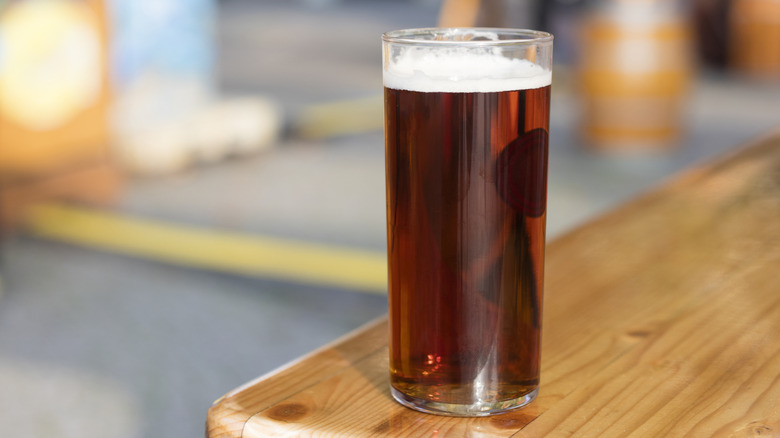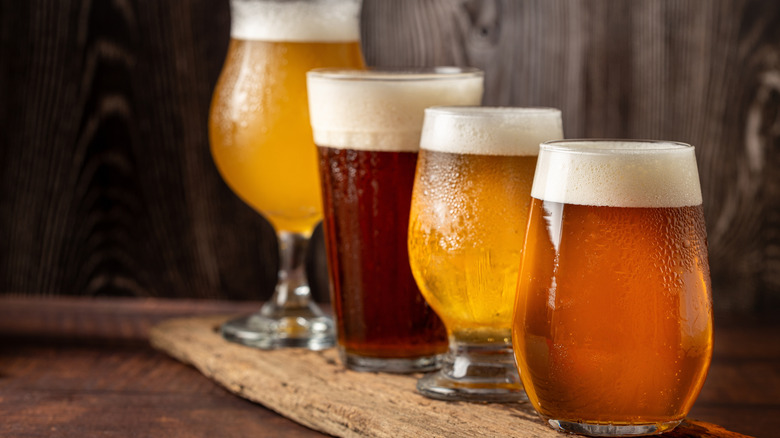What Is Real Ale, And How Is It Different From Craft Beer
The craft beer scene has exploded over the past several decades, and there are now great breweries across the United States and abroad. If, at one of these breweries, you hear a patron talking about "real ale," are they just making a pretentious distinction between craft beer and domestic beer, or does it mean something more? In fact, it's possible they mean a completely unique style of beer.
While the style of ale itself is hundreds of years old, the term "real ale" is much more recent. The term was coined in 1970 by the Campaign for Real Ale (CAMRA), a British consumer organization which advocates for pubs and small breweries — it's still around today. According to CAMRA's definition, real ale is a style of beer made using traditional ingredients, without any artificial carbonation, and which undergoes an old-school "secondary fermentation" in the cask before it's served.
This makes real ale fairly different from most modern beer, which is often filtered and kept in a pressurized keg before it's served on tap; real ale stays directly in a barrel until the bartender serves it to you. Due to this more old-school storage, this beer spoils fairly quickly, but real ale has a strong, unique taste and aroma which its defenders insist you can't find in filtered, keg-conditioned beer.
Craft beer has tons of variety
Craft beer has a slightly broader definition: it refers to beer made by smaller, independent brewers who use traditional brewing methods instead of the popular, mass-market beers like Corona or Heineken. This can still be vague, and the Brewer's Association prefers to define "craft brewers" instead of "craft beer" when discussing the often distinctive, flavorful beers made by these small breweries (strong IPAs are notoriously associated with craft brewers). The term is still complicated, because lots of so-called craft beers are owned by Anheuser-Busch after getting bought out, such as Goose Island and Elysian Brewing. Anheuser-Busch still calls them its "craft partners" and they're still often called craft beer because of their more unique styles. The distinction can grow murky sometimes.
Most real ale would certainly count as craft beer, but all craft beer is certainly not real ale. Real ale doesn't just use traditional ingredients, it specifically requires that cask-conditioning method and no extra carbonation, and it's got a gentle, natural carbonation which comes from fermentable sugars instead. If an ale — or especially a lager — is lovingly handcrafted by a small, independent brewer without using those methods, then it'll be a delicious craft beer, but it won't be real ale. There's nothing wrong with modern beer, but real ale mimics something much more rooted in beer's long history.

